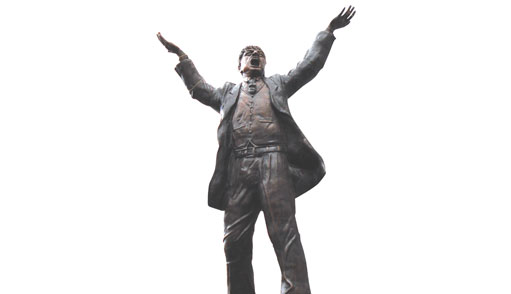Trade Union Desk

It took a global pandemic to expose the deep flaws in our economic model. ICTU’s Macdara Doyle writes.
The ‘free market’ has been relentlessly promoted as the very epitome of lean, seamless efficiency, superior in every way to the stuttering efforts of the State, capable of meeting every challenge and providing for every need. That has now been laid bare as fanciful propaganda.
In every area of society and the economy, the State has been forced to step in and become the provider and guarantor of last resort, on a scale not seen since the New Deal of the 1930s or the wartime economies that followed.
Even prior to the onset of the Covid-19 pandemic, it was clear that our current model was incapable of providing the services and standards necessary to ensure a decent quality of life and a reasonable standard of living for millions across the globe.
In strategic areas, such as housing, successive Irish governments had abandoned their key role and outsourced the task to the market. The result is the longest and most severe housing crisis in our history. Housing became a commodity for speculators that was divorced from its core social function. Tens of thousands in insecure housing were left exposed and vulnerable to eviction when the pandemic hit. The State was again forced to step in.
Within developed economies, the contradictions at the core of our model were visible within days of the first lockdown: without a veritable army of primarily low-paid and precarious workers our societies would have ground to a halt. Indeed, the very success of our model seems to be predicated on insecurity and inequality.
Care workers, retail staff, distribution staff, drivers, cleaning staff and many others had previously formed an unseen and disposable underclass. When required, these essential workers were to be found on the front line. They ensured our shops stayed open, the shelves were filled and supply chains clear, they cared for the sick and the elderly and kept our transport systems running. In doing so, they were at greater risk of exposure to Covid-19.
In a study of the impact of the virus, the National Economic and Social Council (NESC) pointed out how the pandemic had made ‘poor jobs’ worse, but more valuable to society as a whole.
The NESC report said that higher standards of employment must be seen as an essential component of a modern economy: “Society needs to have a very practical and detailed discussion about good jobs, what a good jobs economy means and about what levers are available to policy-makers to promote them.”
A key challenge is tackling low pay, which is prevalent in the very sectors on which we depend. Alongside Retail and Distribution, Accommodation and Food is among the lowest paid sectors of the workforce with pay rates that often fall below the OECD low pay threshold. The same workers also face exorbitant costs for housing and childcare.
Where there is trade union presence, collective agreements have secured higher than average wages and conditions for workers, primarily in major outlets and chains. Critically, trade unions in this jurisdiction also secured a landmark ban on notorious Zero Hour Contracts, through the Employment (Miscellaneous Provisions) Act of 2018.
But low pay and growing inequality appears hard-wired into our current global model, with the OECD reporting on “unprecedented levels of wage stagnation’’ and a decline in labour’s share of national income.
Simultaneously, we have seen a dramatic rise in CEO pay, with a pay levels up to 200 times that of the average salary, according to studies by the Irish Congress of Trade Unions. And the Financial Times recently reported that the wealth of the world’s richest reached an all-time high during the early months of the pandemic, as did the number of global billionaires.
Meanwhile our essential service workers in retail, distribution, care and many other sectors remain undervalued and underpaid. It’s time to reset and rebuild. Putting decent work at the heart of any recovery must be the first step in that process.





